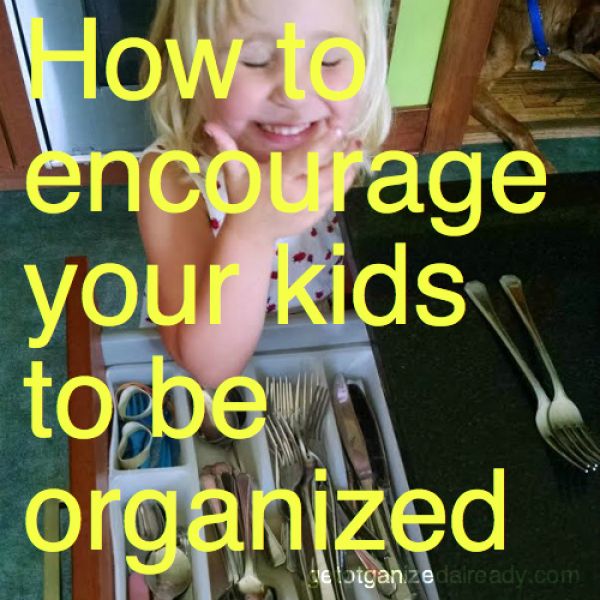How to encourage your kids to be organized

Some children love organizing. They’ll color code their homework and put their books in alphabetical order. Other children, well, not so much. They’re more likely to think their room is clean if the mess is contained by the walls of their room instead of strewn all over the house. Still, the more you show your kids the difference organization can make in a space (and in life), the more likely they’ll be to form positive habits.
It stinks to lose an important piece of a favorite toy or a page homework that is due. These are real-life examples your kids will understand. So, when these things happen, instead of pointing out the negative (which they are ALREADY FEELING), take the time to talk about how to prevent losing things in the future.
One way to avoid losing things all of the time is to give everything a home. But, equally important is to get rid of things when you are done with them.
Here are a few ways to encourage life-long organizing habits.
1. Use checklists. Post chores, reminders and to-dos for your kids to complete. There’s nothing more enticing than putting a big check-mark next to an assignment. Laminate daily and weekly chore lists (for re-use) and encourage your kids to check off to-dos as they complete them.
 2. Organize homework. Choose a designated place for your kids to work on and store their homework. Encourage them to write down their assignments in a small notebook and cross each off once it’s finished. To avoid morning stress, have your children place their completed homework in their backpacks every evening before bed.
2. Organize homework. Choose a designated place for your kids to work on and store their homework. Encourage them to write down their assignments in a small notebook and cross each off once it’s finished. To avoid morning stress, have your children place their completed homework in their backpacks every evening before bed.
3. Include your kids in organizing paperwork. Place a magazine holder or folder by the front door or in your home office for your kids to put important paperwork. When they get home, ask them to put permission slips, notifications and letters from the school in the folder for you to review at your convenience.
4. Maintain a family calendar. Post a large calendar in a place where everyone can access it, like the kitchen. If your kids have electronic devices, share digital calendars with each other. Have them write down important dates for school and extracurricular activities on their calendar. If your child wants to schedule something, have them check the family calendar first.
Organization doesn’t seem to be hereditary (from my informal research). However, all children can learn some organized habits. And if you are not organized yourself, you can learn them together.
As a professional organizer, I’m the first to say there is no such thing as a perfect home. You can strive for perfection, but it’s important to recognize that small improvements are powerful motivators. This is especially true with children. Rejoice in small victories and forgive yourself when you slip.